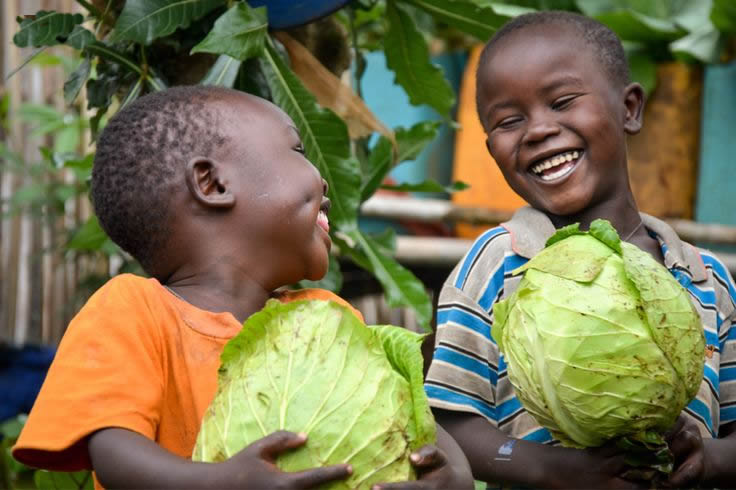 |
Da so a molengue ake da, makelele ake da. (Sango) Nyumba ambayo ina watoto, haikosi kelele.(Swahili) La maison ou il y a des enfants, n’a jamais manqué des bruits(French) A house with children never lacks noise. (English) |
Sango (Central African Republic, Chad,
Democratic Republic of Congo (DRC),
Republic of the Congo, Tanzania) Proverb
Background, Meaning, and Everyday Use of the Proverb
The Sango are a Bantu Ethnic Group that inhabits the Equatorial Province of the Democratic Republic of Congo (DRC). They are the minority in comparison to the Nilotes and Pigmies in DRC. The Sango are a big ethnic group living in the following five countries in Africa:
- Central African Republic (1988 census): 4,600,000 speakers.
- Chad: 50,000 speakers.
- Democratic Republic of Congo (DRC): 1,300 speakers.
- Republic of the Congo: 99,000 speakers.
- Tanzania: 165,000 Speakers.
Total speakers in all countries: 4,915,000.
In Central African Republic, the entire population speaks the Sango language. Sango is also the country’s national language. It originated as a pidgin language in the last decade of the nineteenth century in the eastern part of the Ubangi River basin. This was as a result of the competitive occupancy of that area by representatives of the Congo Free State versus the French government. Since speakers of the closely-related and mutually-intelligible dialects of Sango, Yakoma, Ngbandi and Dendi lived in that area, it is understandable that the foreigners who came in contact with them (i.e. the Africans from different parts of the continent) used whatever they could learn of the local dialects to construct a medium for communication.
According to most researchers in the domain of African literature, proverbs play a significant role in both the traditional and the modern African societies. They are used to:
- Synthesize and to conserve a holistic cultural and philosophical heritage which constitutes the wisdom of a people;
- Direct and uplift masses socially, morally and intellectually; and,
- Consecrate the knowledge of culture and the mastery of a people’s language.
In Africa, the use of proverbs forms part of the people’s daily discourse. This proverb from the minority Sango Ethnic Group of DRC is used during mourning, organizing funeral vigils and recounting oral narratives. Sayings, legends, short stories and fables also form part of the lifestyle of the Sango community. In all these circumstances, the proverb intervenes for various reasons: to educate, to moralize, and to settle conflicts. Thus, proverbs are used to change people’s behavior and to shape their character as desired by society.
This Sango proverb means that quarreling, disagreements, open confrontations and noise in the house are part of life. Indeed, this is not a bad thing; it is a natural human condition. This proverb therefore advocates for cohesion and peace among people who live and work together.
Biblical Parallels
1 Samuel 4:6:“And when the Philistines heard the noise of the shout, they said, what meaneth the noise of this great shout in the camp of the Hebrews? And they understood that the ark of the Lord was come into the camp.”
Genesis 45:16:“And the fame thereof was heard in Pharaoh’s house, saying, Joseph’s brethren are come: and it pleased Pharaoh well, and his servants.”
Galatians 3:26-28:
26: “For ye are all the children of God by faith in Christ Jesus.”
27: “For as many of you as have been baptized into Christ have put on Christ.”
28: “There is neither Jew nor Greek, there is neither bond nor free, there is neither male nor female: for ye are all one in Christ Jesus.”
Contemporary Use and Religious Application
Living together in unity and solidarity makes a family strong. Togetherness breeds blessings, happiness, fraternity and love. However, there are many challenges to this end due to lack of human values in some members of the family or community. Wherever people are gathered, quarrels and confrontations must occur. Some people are despiteful, arrogant, disrespectful and impatient. Others are even murderers.
Supposing that Abel was living in another part of the world far from his brother Cain, would he have died the way he did? Perhaps not. Genesis 4:8: “And Cain talked with Abel his brother: and it came to pass, when they were in the field, that Cain rose up against Abel his brother, and slew him.”And who could have known that Cain was a bad person? Nobody. So, living together makes people know each other better than living far apart.
NOTE: This Proverb is No. 13 in a collection of 100 Sango Proverbs and Wise Sayings by Laur Mwepu in collaboration with African Proverbs Working Group, Nairobi, Kenya.
Laur Mwepu
Nairobi, Kenya
Contacts: +254 790 688 908
Email: laurmwempu@gmail.com
Ben Chebweche Mabuto (Editor)

